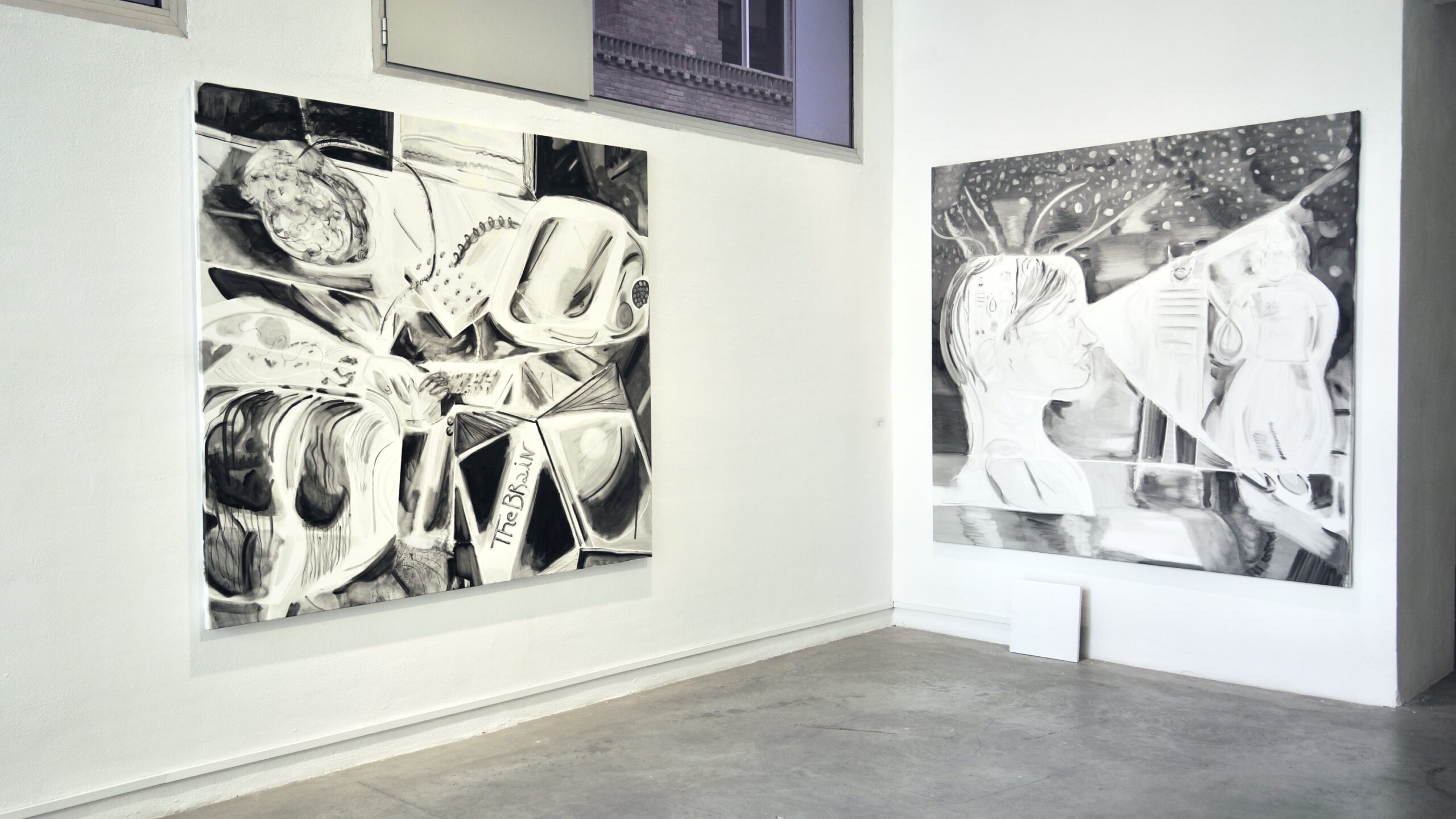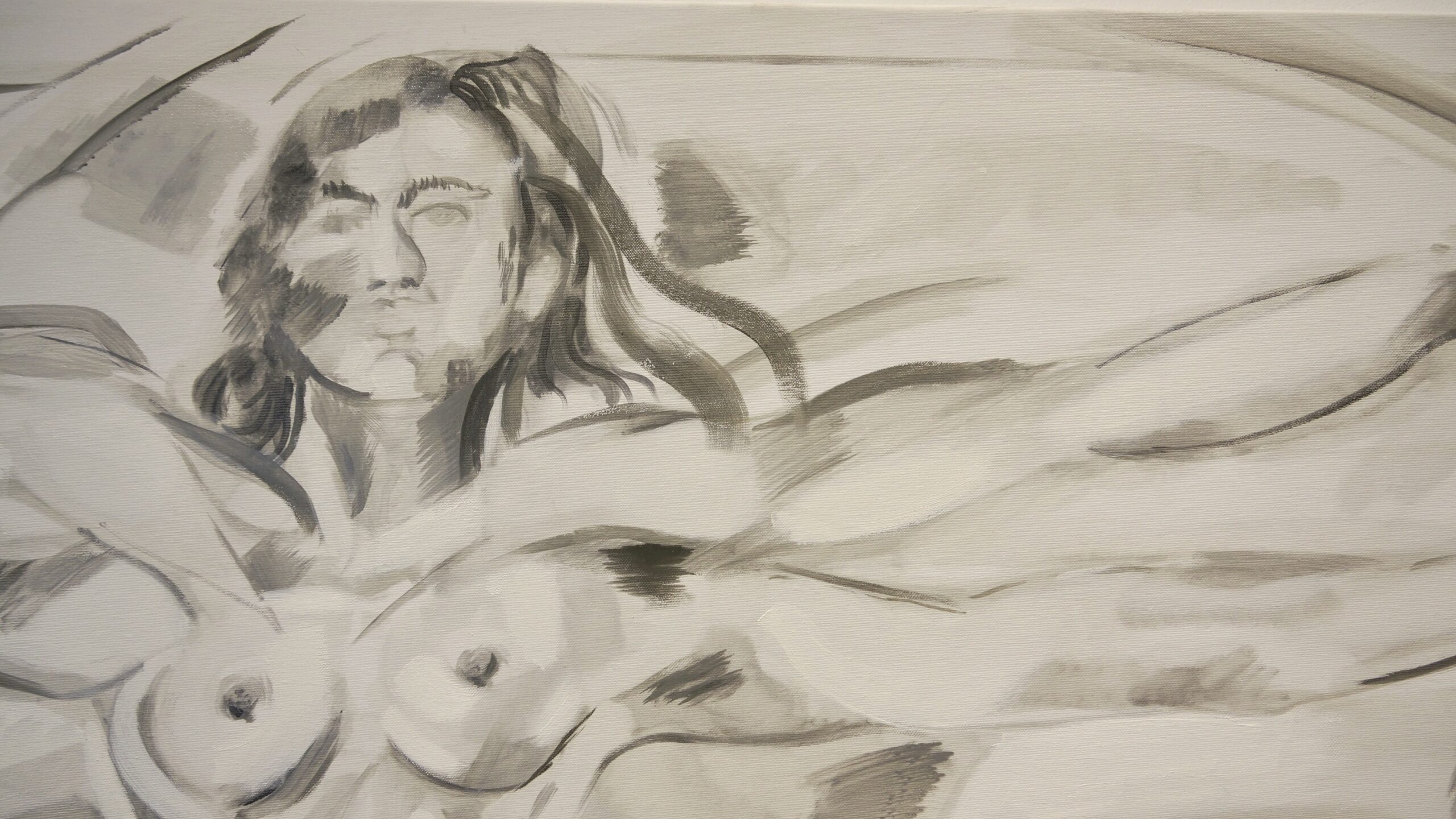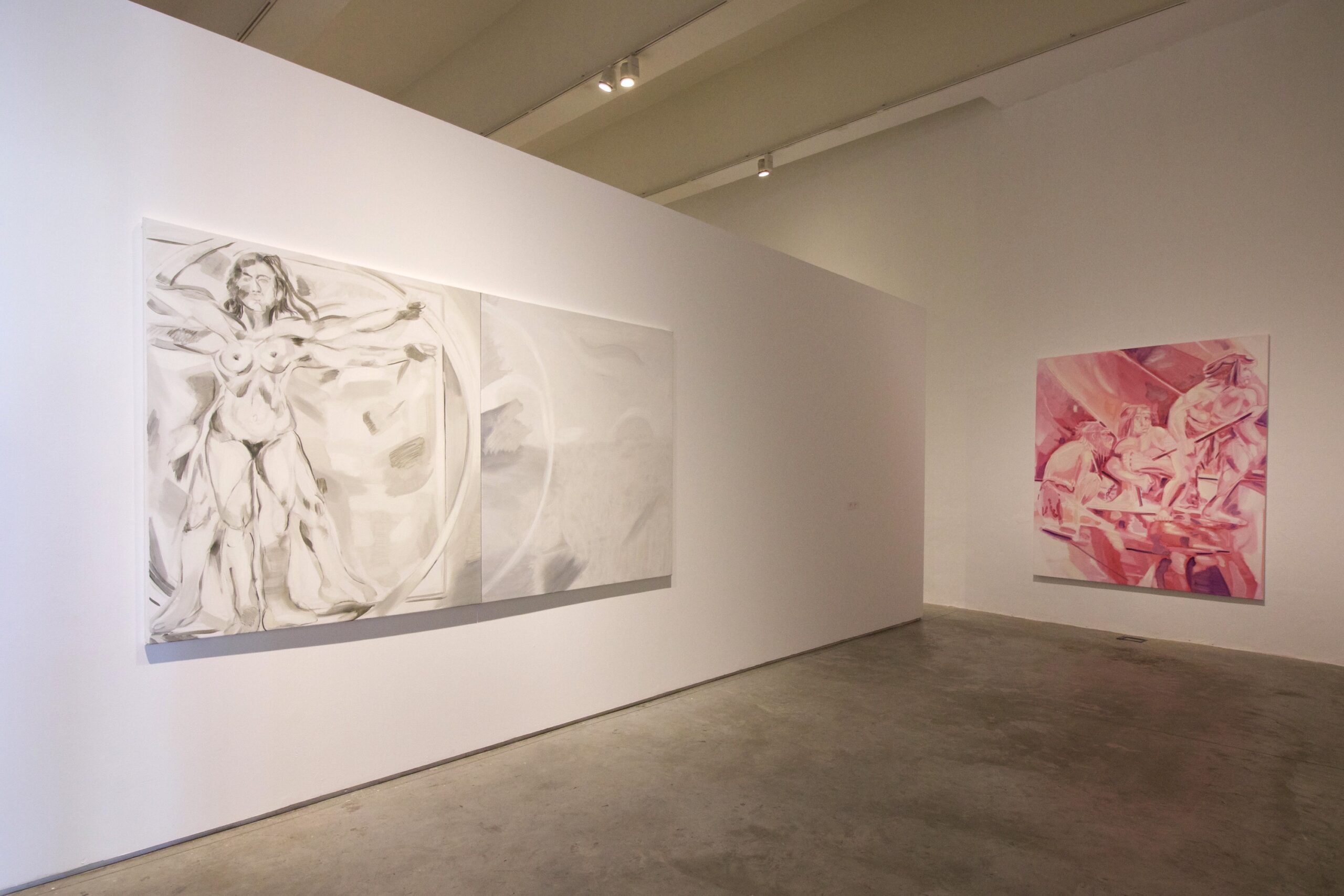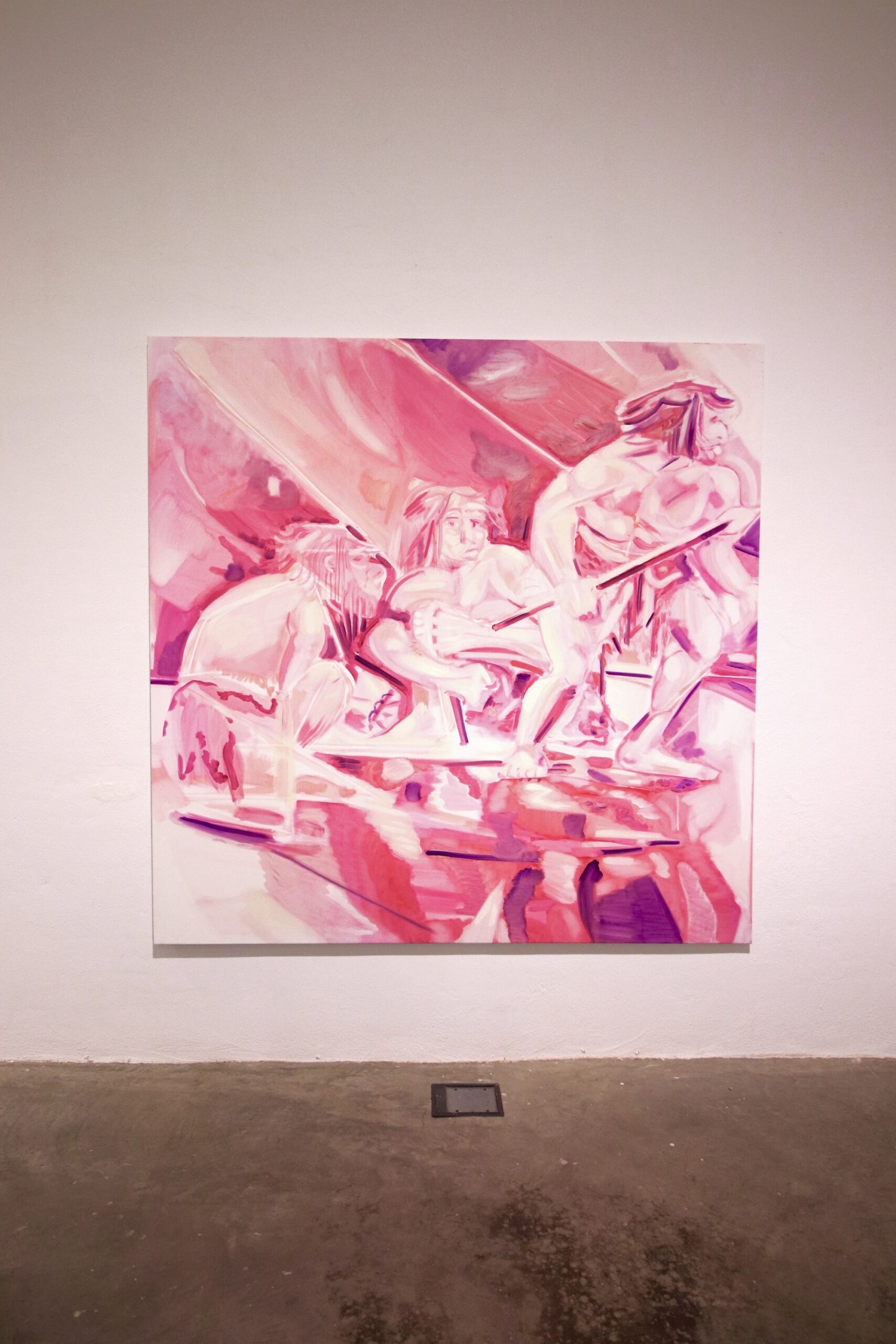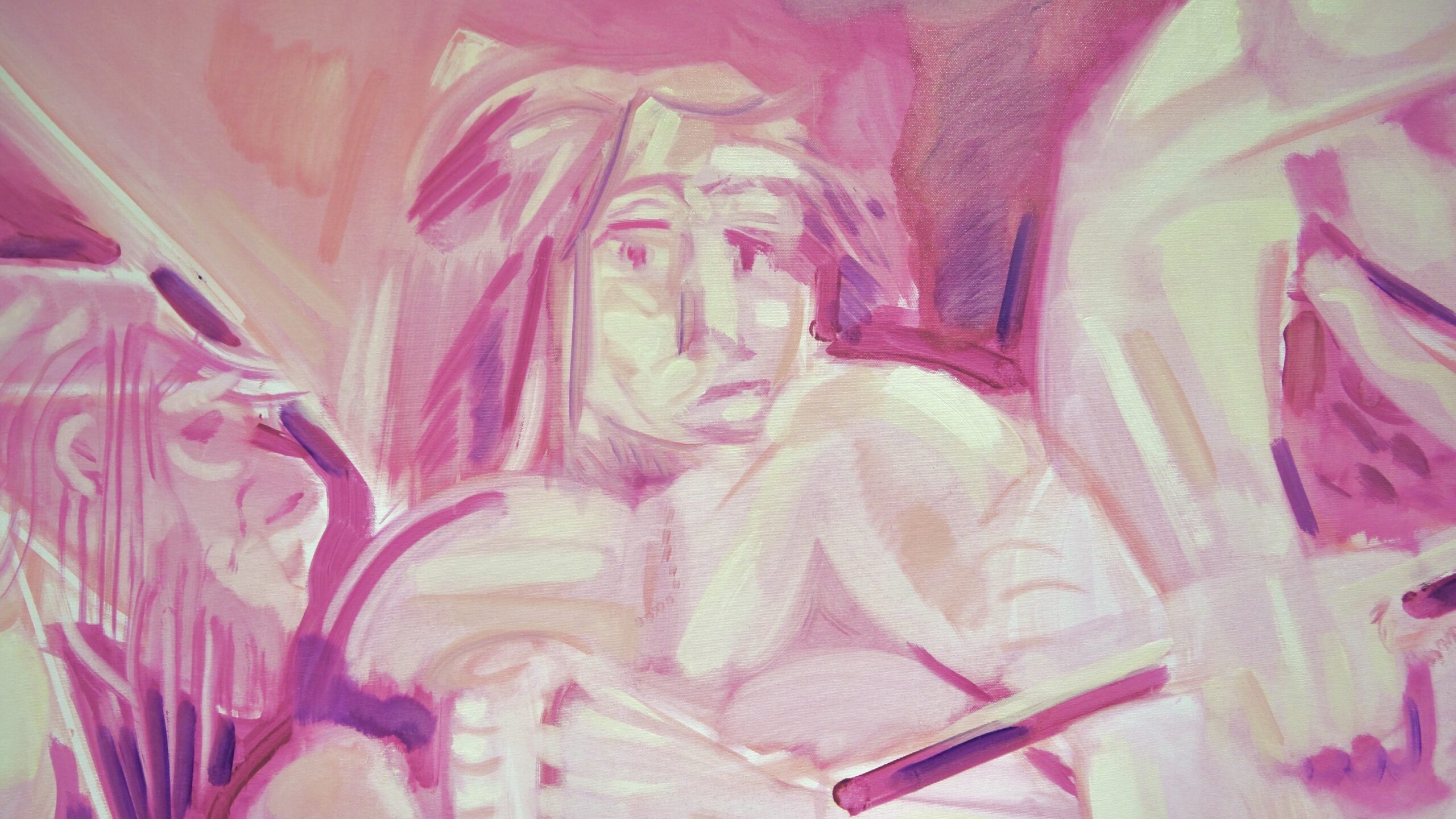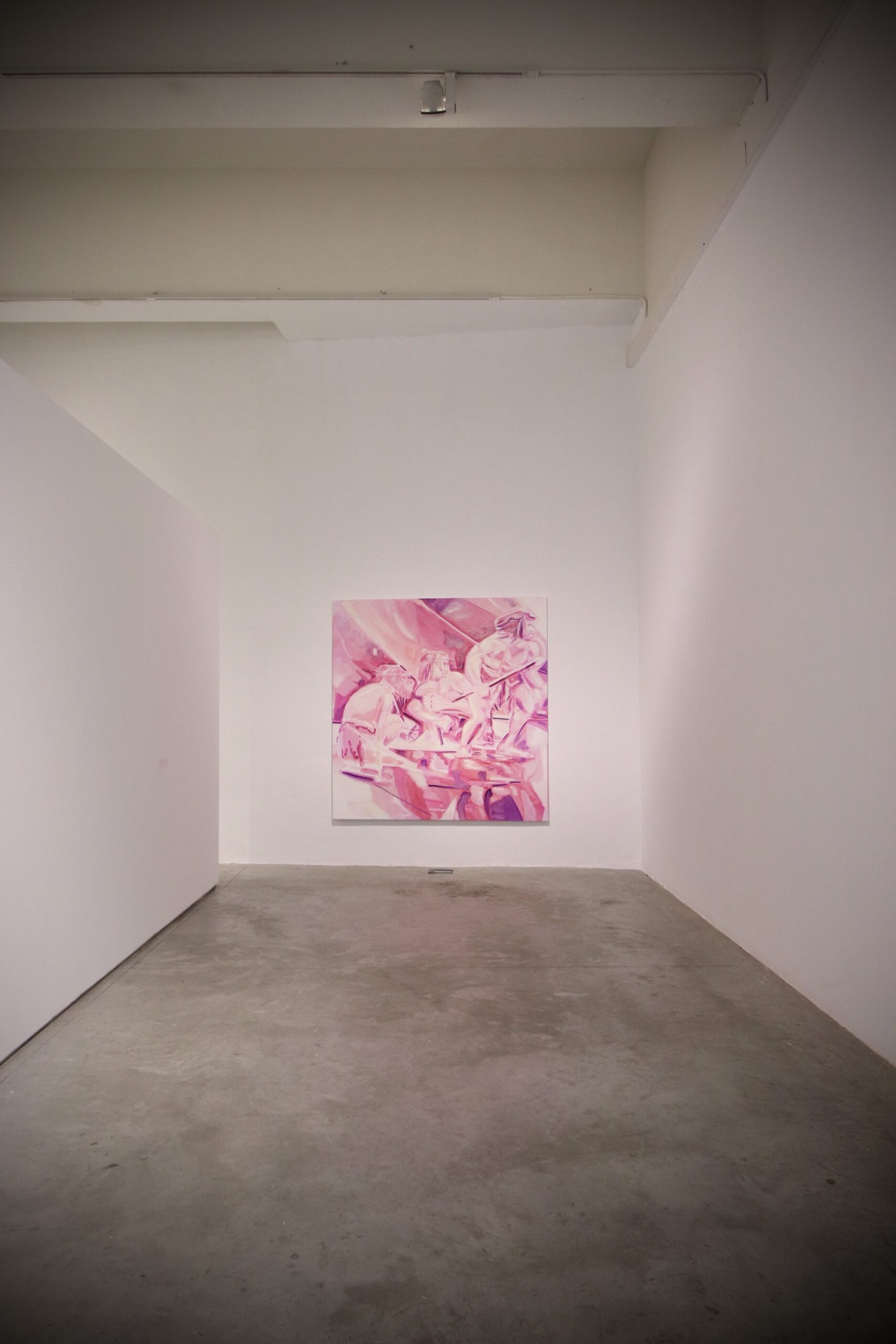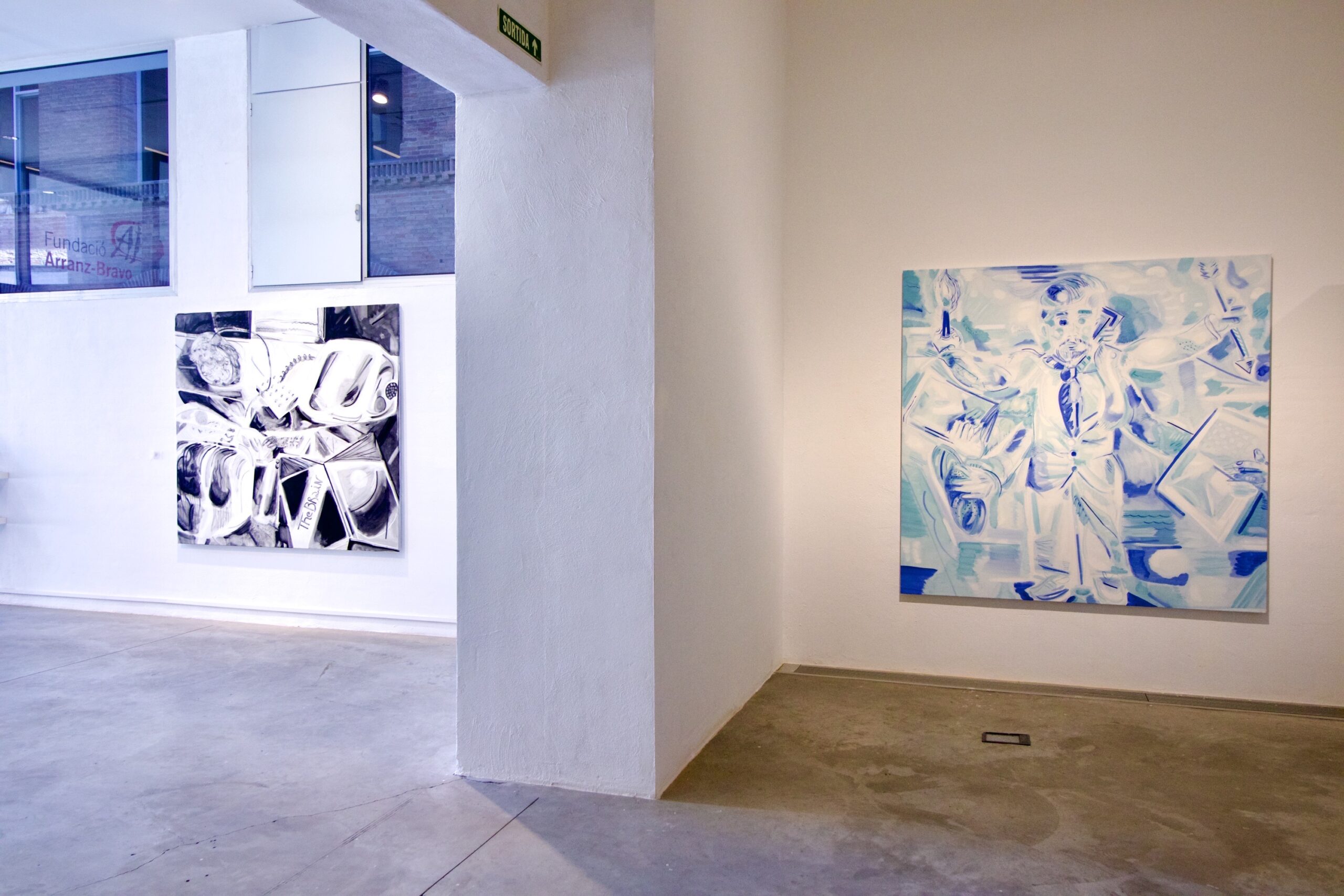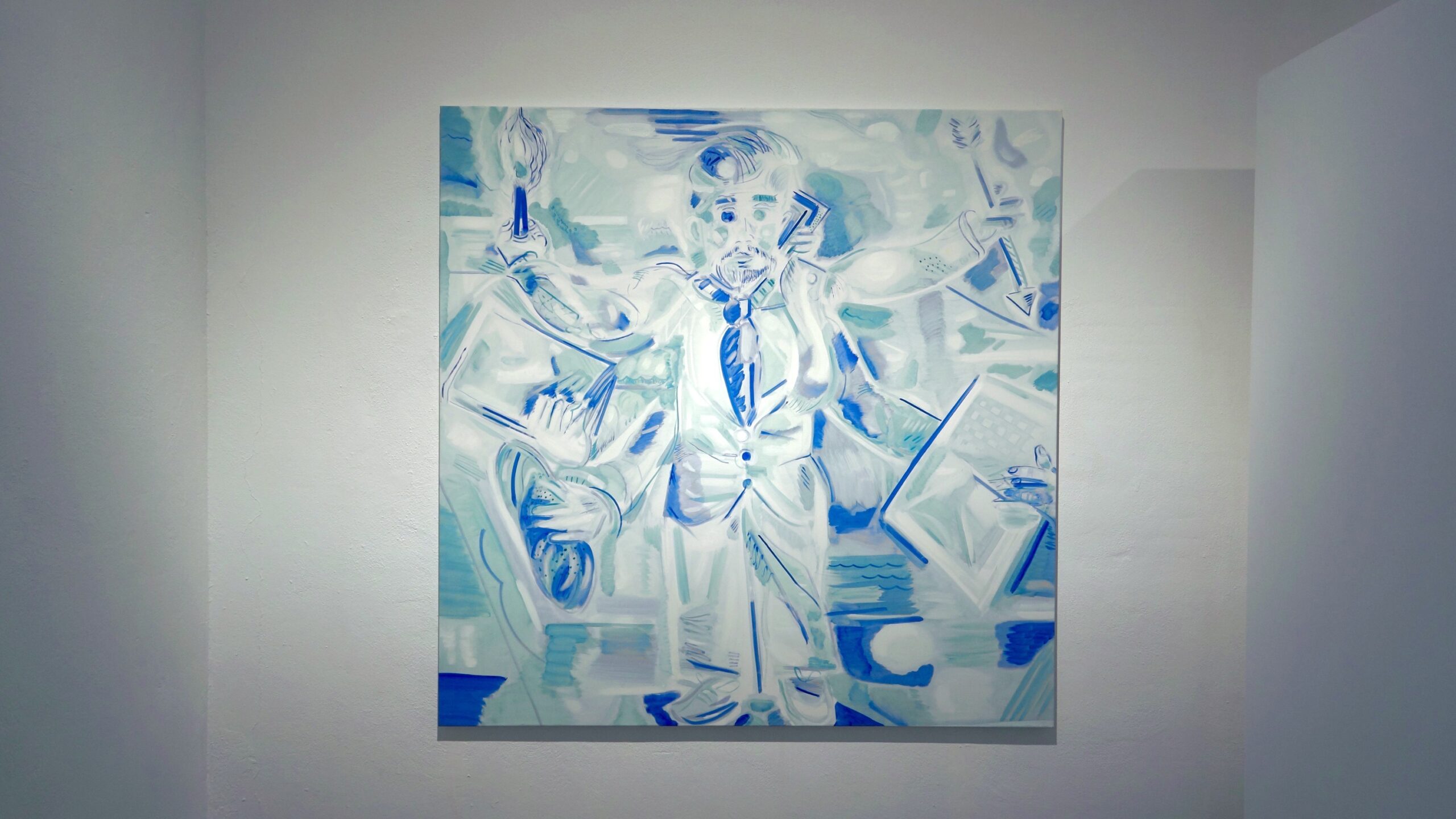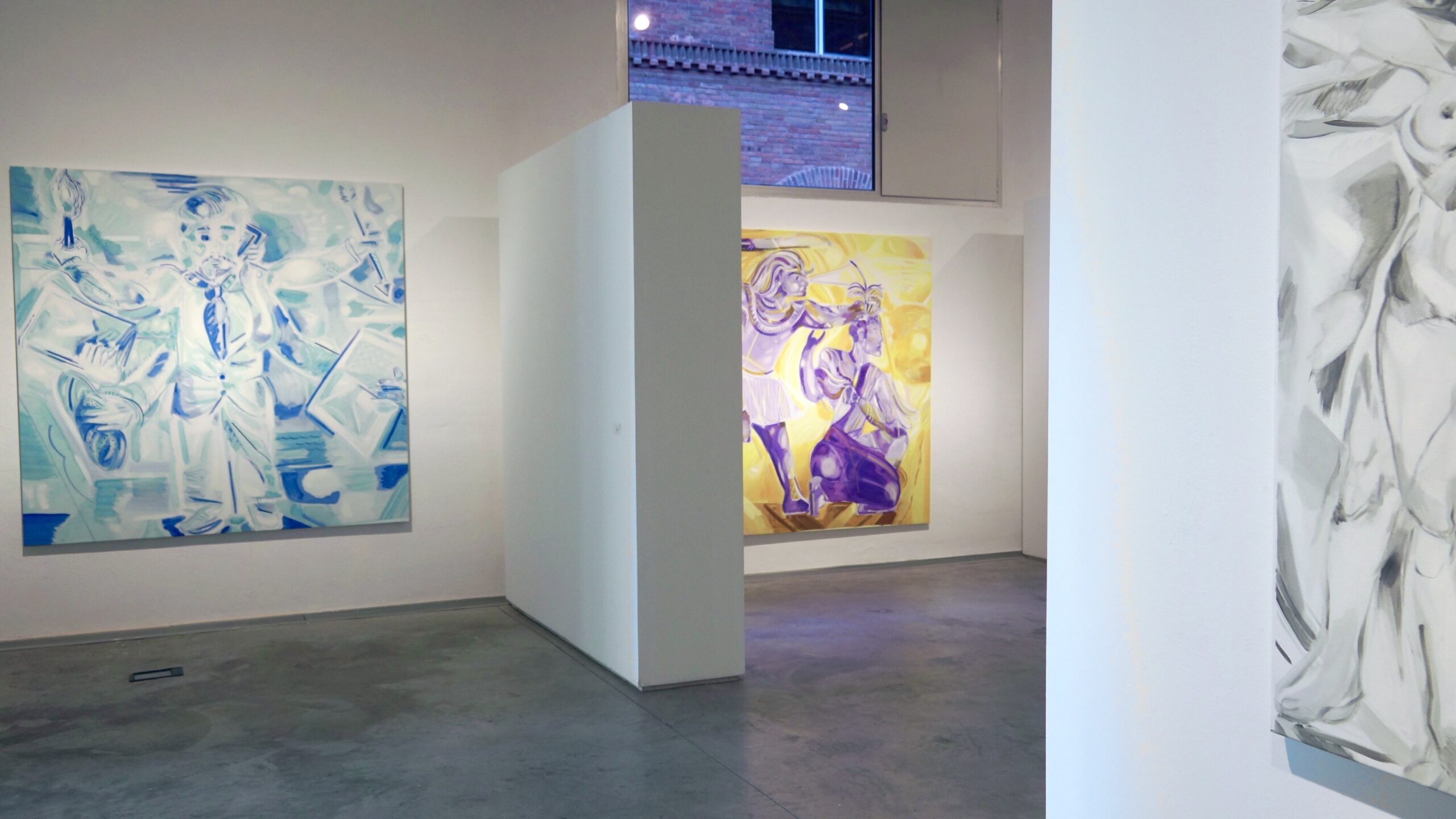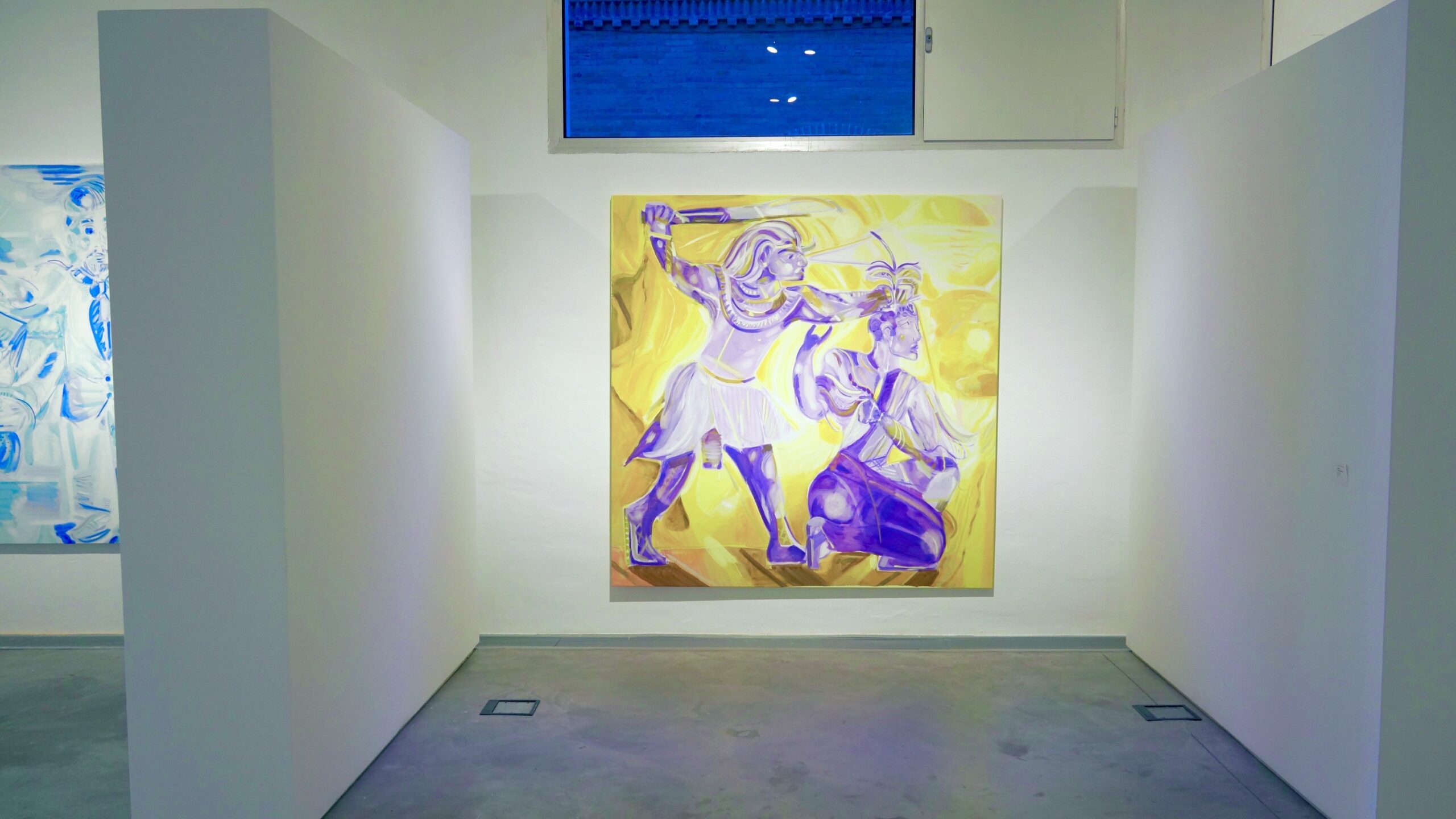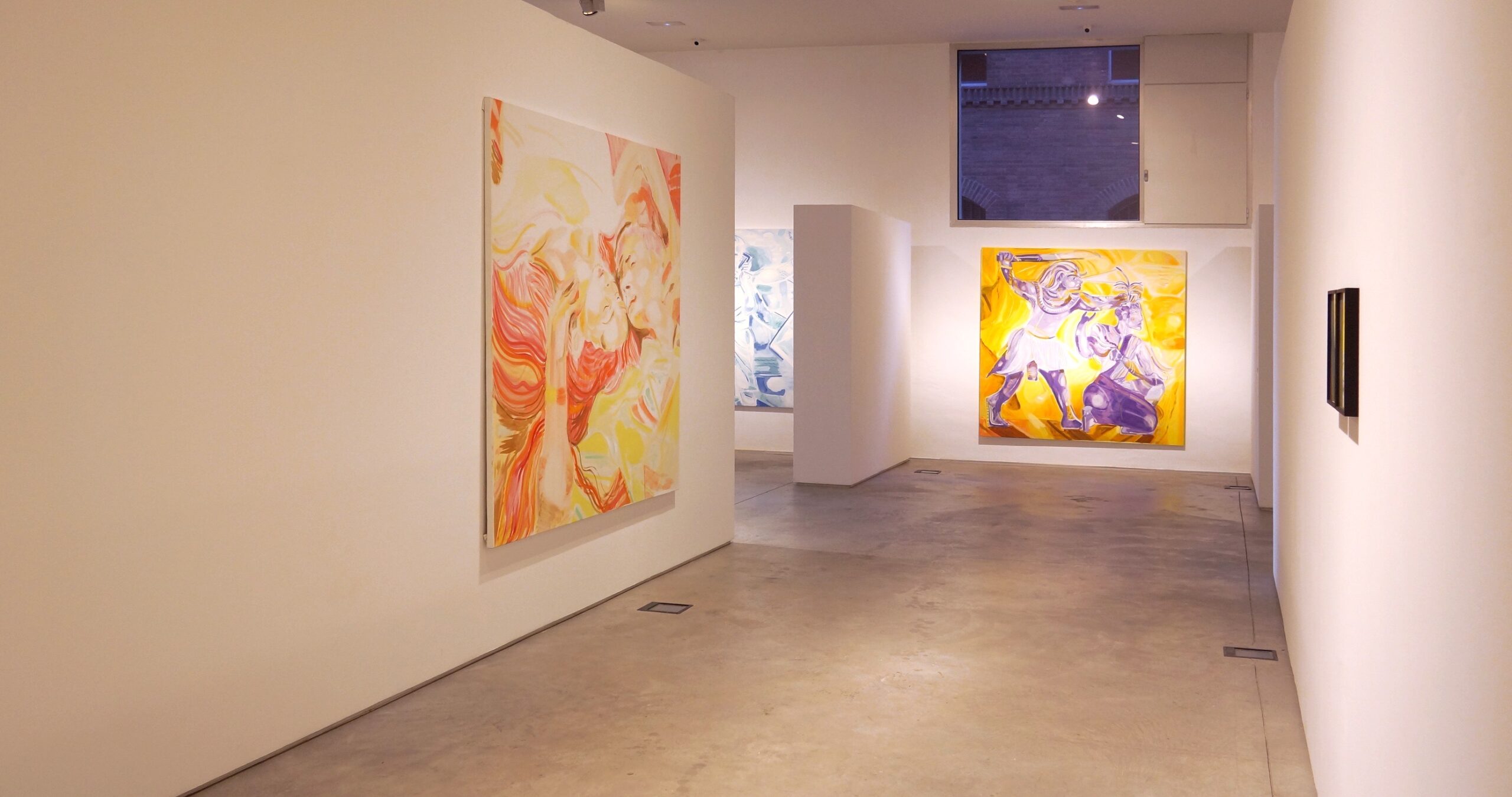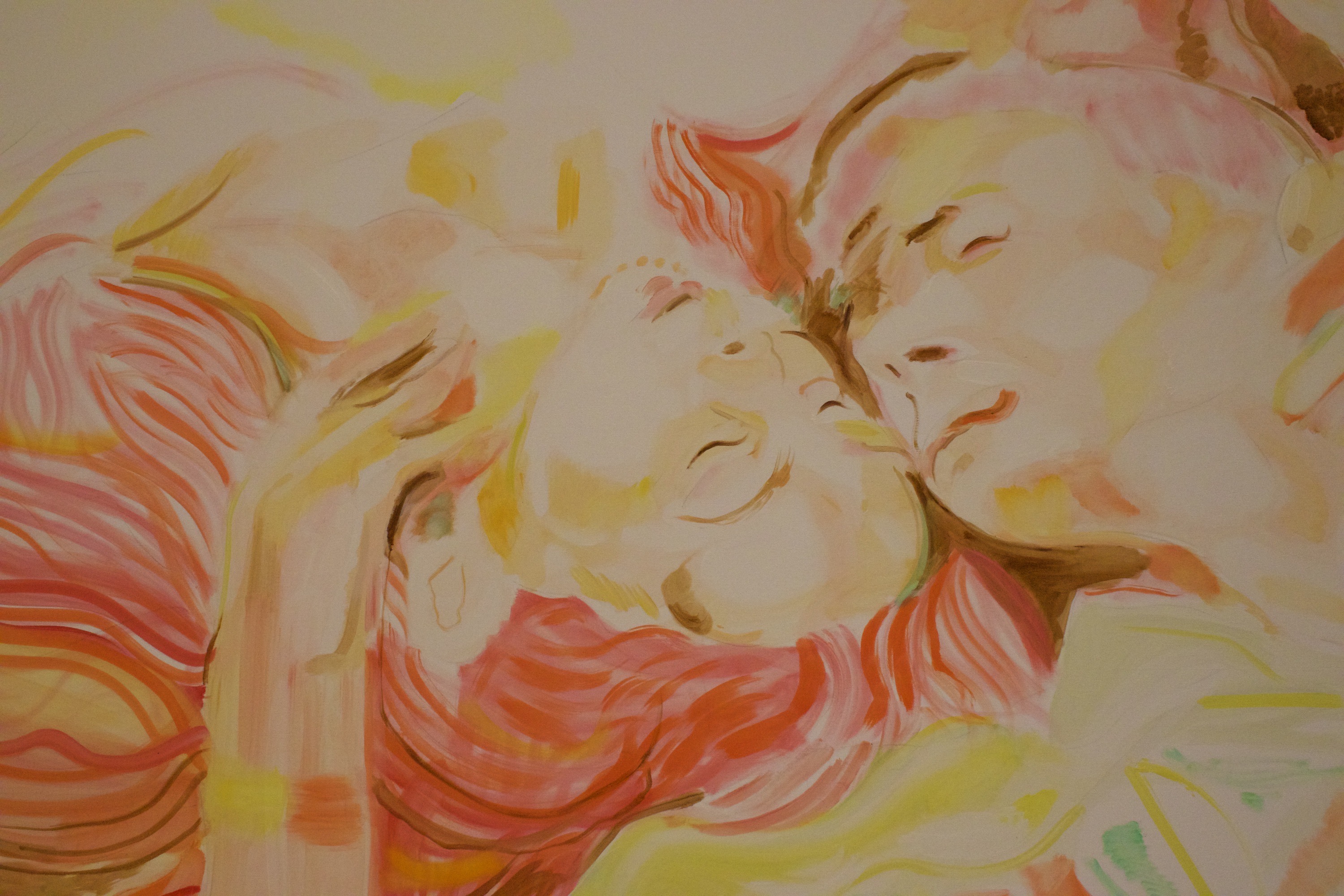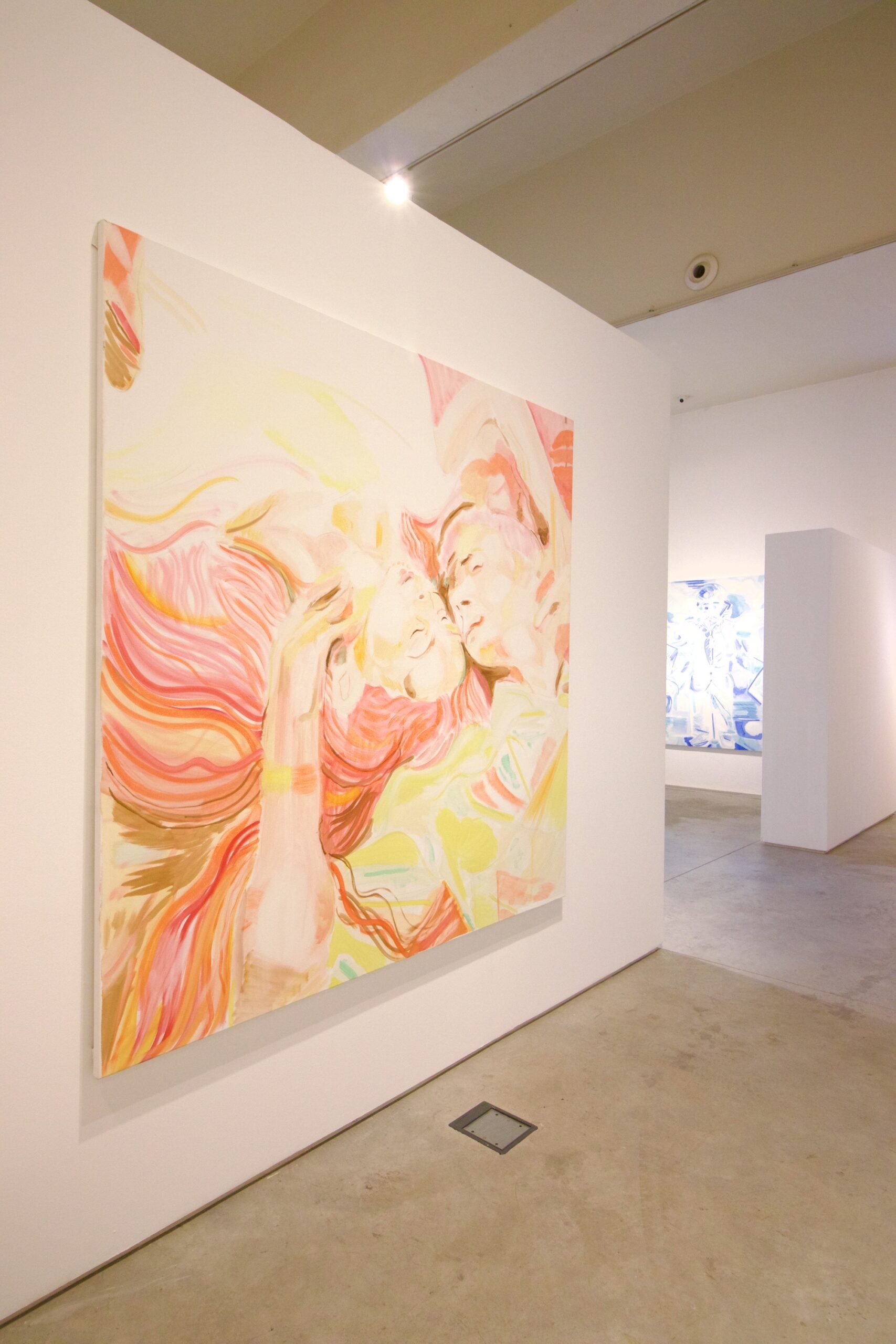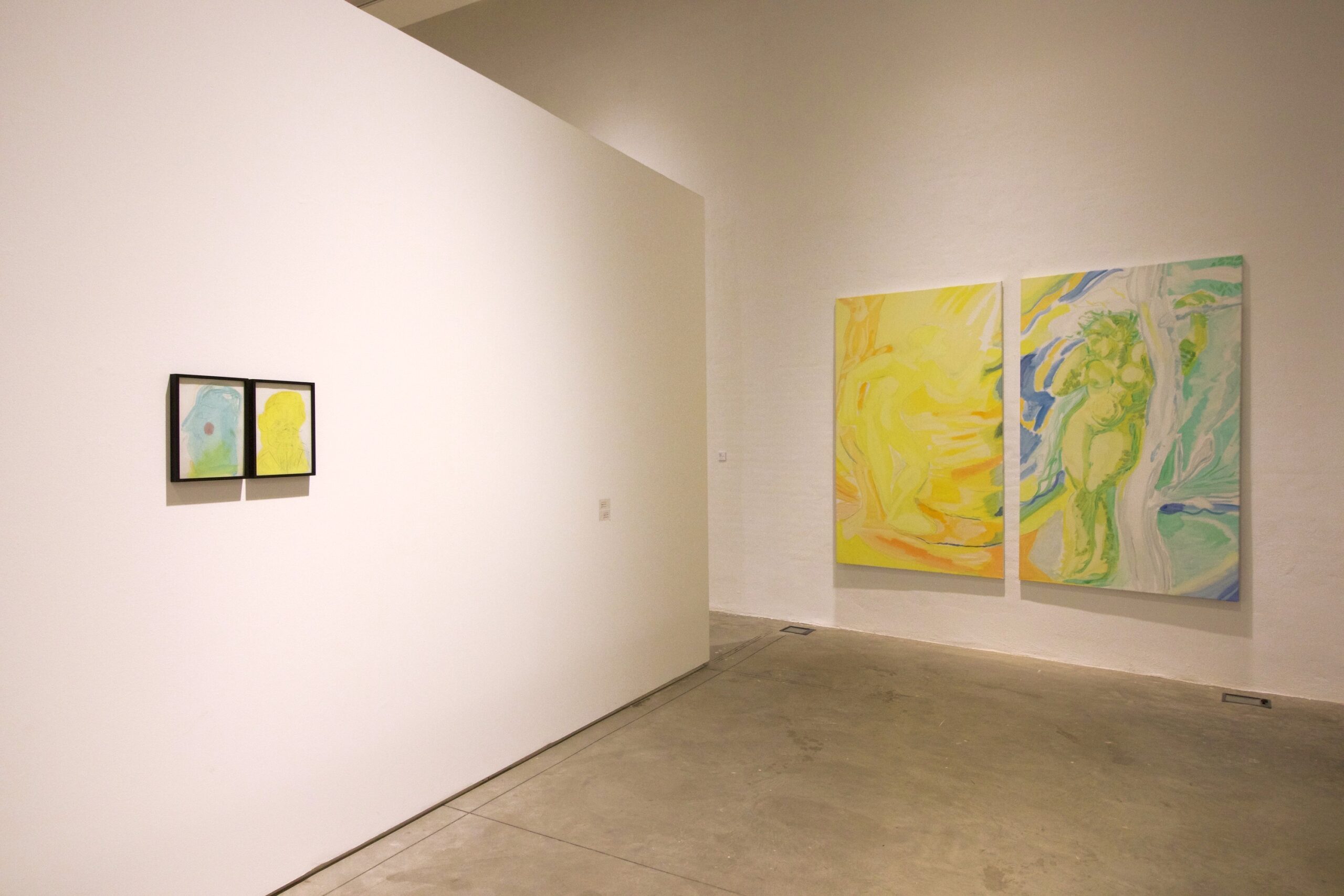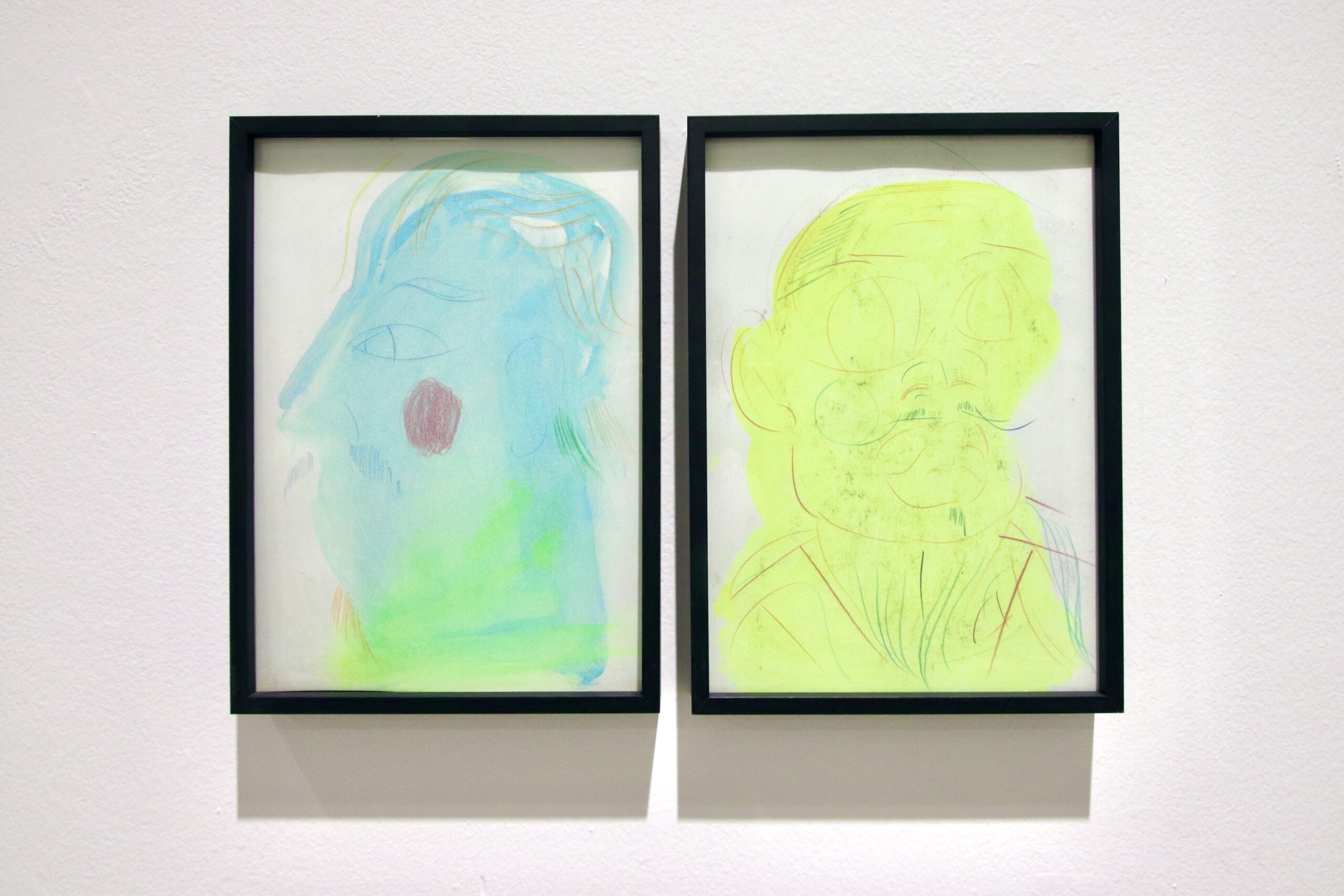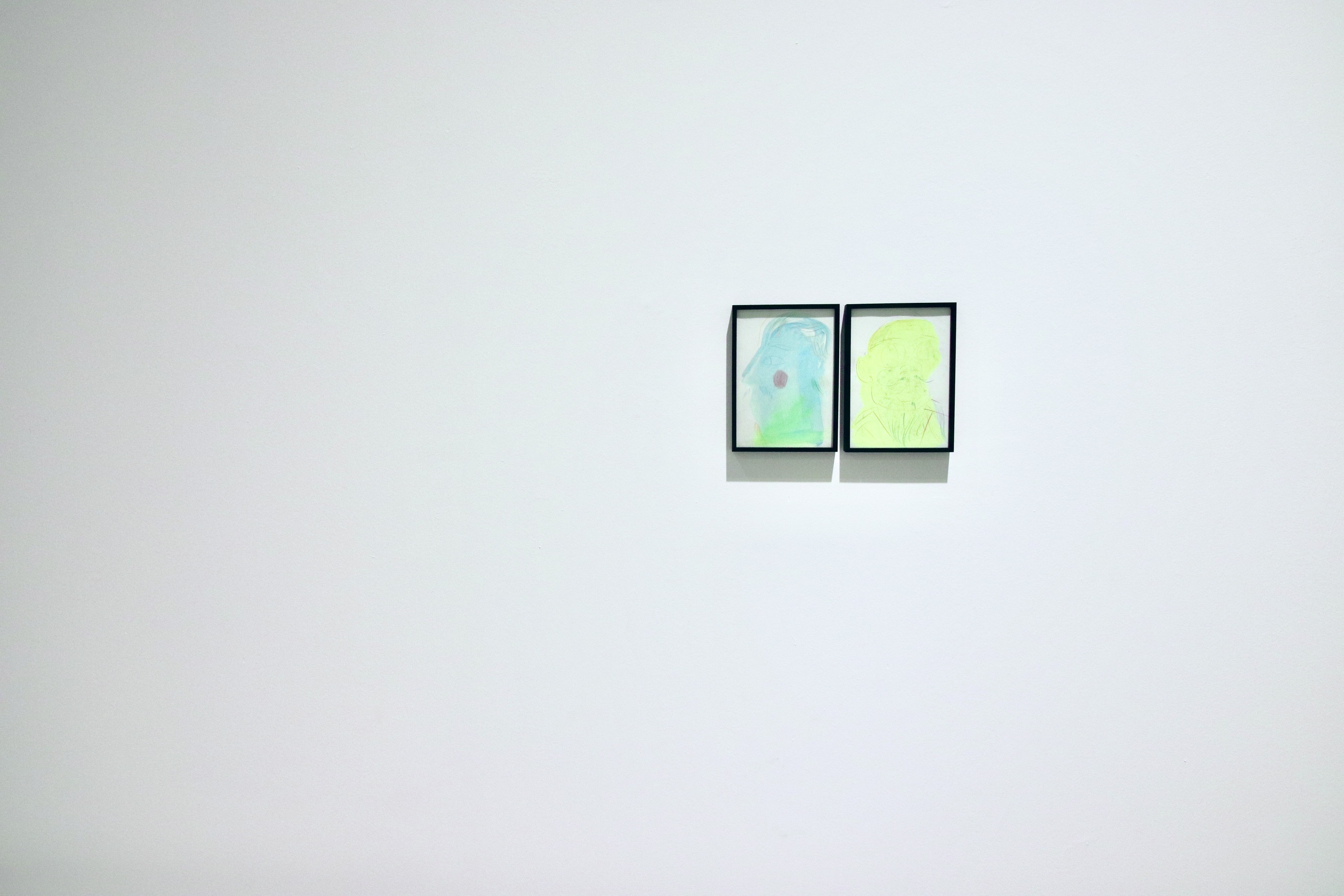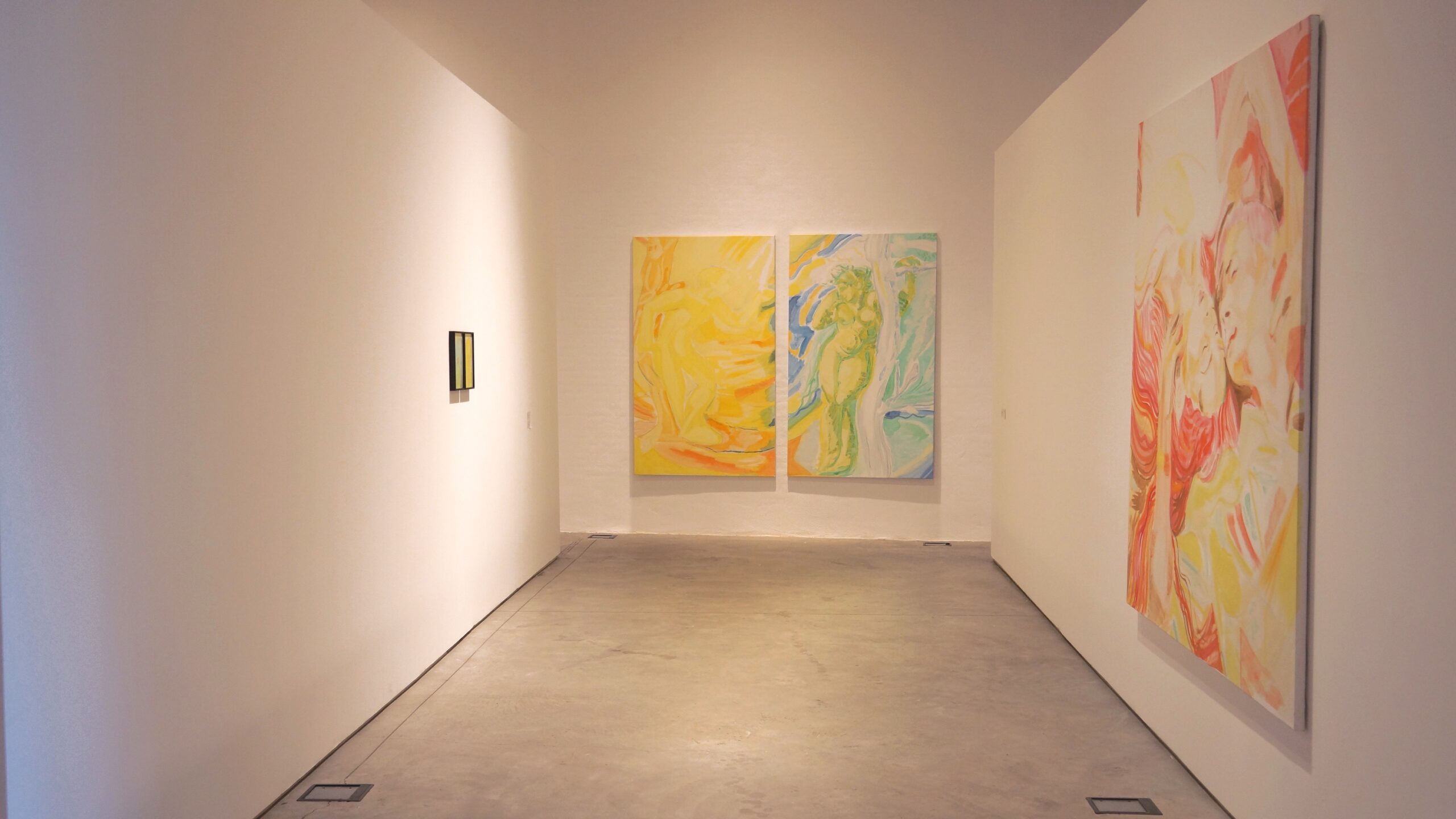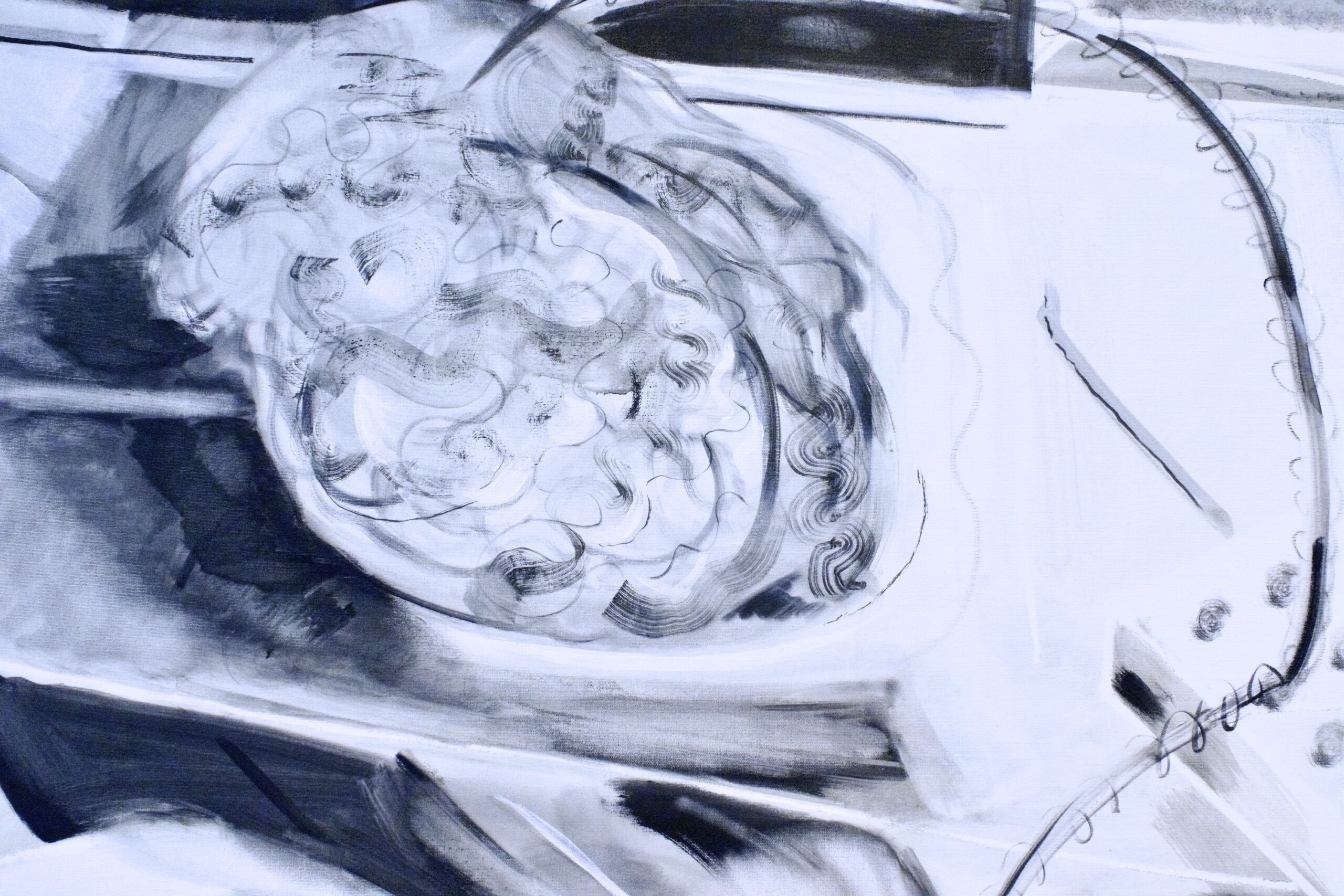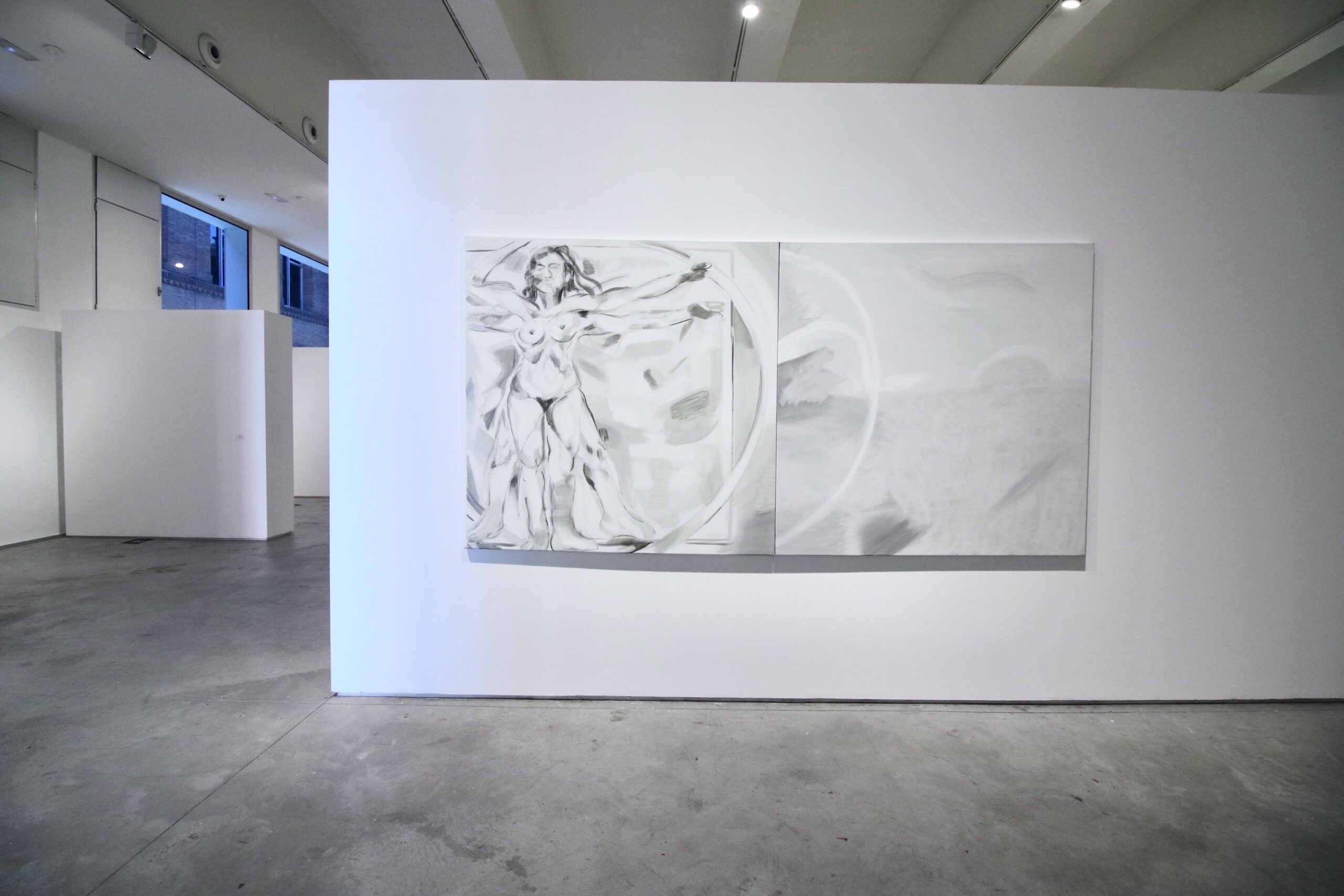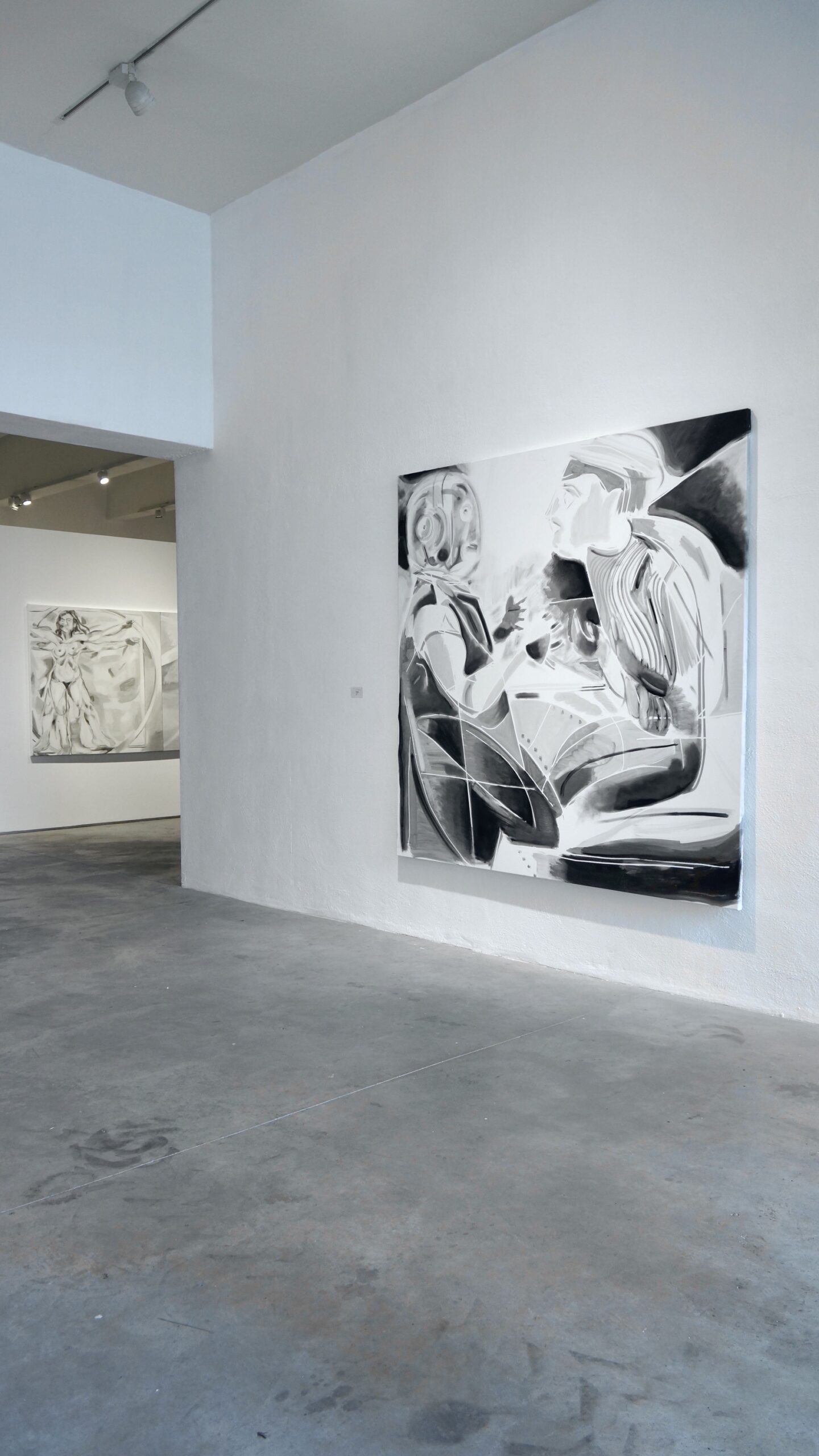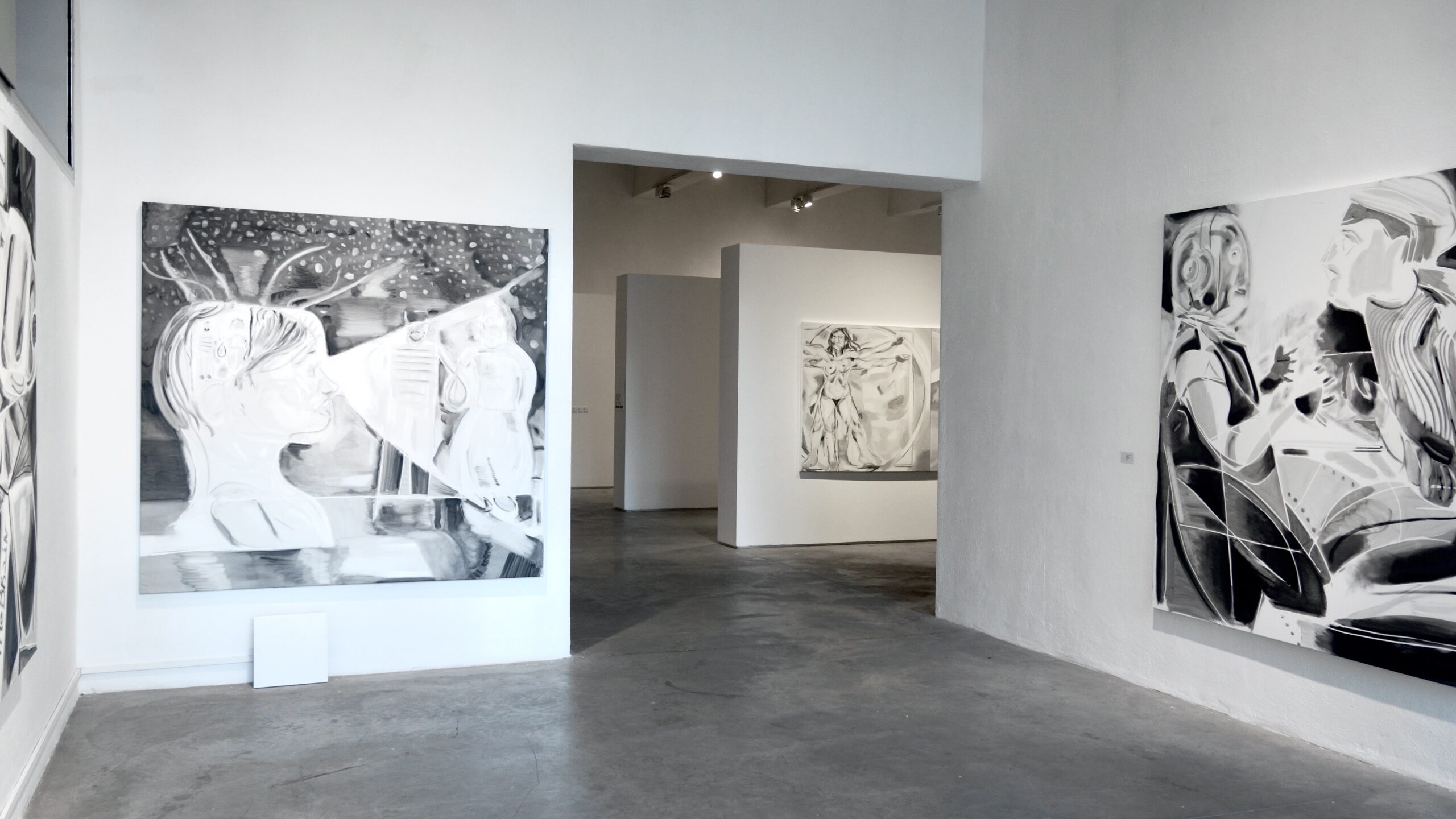Human-Mind
Curator Jordi Garrido
Arranz Bravo Foundation
Hospitalet de Llobregat
Barcelona
We are facing a crisis in the human mind that cannot account for its current state in the complexity of the earth system at this time.
The earth system that includes all that it has done for the human being, this is the unfolding of the human species and with the creation of the machines. We have to think that, evolutionarily, machines are a new evolutionary wave on earth, which is transforming the earth itself and are transforming us humans.
This situation has generated a complexity in which we want to approach it from what is known as the first human mind.
The first human mind is the mind that we developed to survive as a species, since we emerged as a new species, to be able to reproduce ourselves and to be able to have a first organization that would allow the survival of the human species. The human species, as a species, learned to survive and learned to reproduce. From a biological evolutionary point of view, we are a successful species.
What is this mind like, the first human mind is a predator’s mind. This predator does not have sufficient intelligence to link itself otherwise with the ecosystem to which it belongs. It had to survive, it had to fight, it had to defeat the other species, it had to control the world in order to exist. That same controlling intelligence is today causing the earth to enter into crisis. We cannot wait for better leaders, better systems or better ideas to emerge unless there is first a profound transformation in the human mind.
In the first million years that we had to survive, we had to devote ourselves to conquering the world. But this same conquest of the world has its edge, has its limit, because each human tradition begins to collide with the other and at the same time the technological development is amazing and creative, but it generates catastrophes and is unbalanced. This same species that on the one hand is technologically very successful. At the same time we are still involved in wars, in violence, in clashes between civilizations, clashes between religions, in total misunderstanding. Our species, which has learned to survive and to settle on earth and which has an enormous technological capacity, has a very low capacity for bonding.
From the point of view of human history, technologically it is amazing, but our psychological conflicts are always the same. A novel set in ancient Rome has the same dramas of the present and any science fiction author who writes a novel that will happen 100 years from now, technologically tells us fantastic and fascinating things, but what happens psychologically is exactly the same. The human brain has hyper-developed technologically, but it is very immature psychologically. That is why we cannot link correctly with the other species of the earth, we cannot link correctly between the different traditions of the earth. We are in permanent conflict, that is, permanent with each other and permanent with the other species.
The problem is in the type of mind that cannot solve the very problems that I have generated. Within the evolutionary potentiality of the brain, what has developed is a capacity to construct objects. It is a mind that perceives, constructs and manipulates objects. The mind is able to control reality in the sense of molding it according to the images it creates about the future. The mind appropriates what it perceives and wishes to shape it. The human mind appropriates, cuts and molds and this is something it does unconsciously and mechanically. In a relationship, what unfortunately happens to the subject is that sooner or later he discovers that he has been treated as an object by some other subject. The reality is that he has not opened himself to perceive relationships, to perceive links, but… that he has become fascinated in his capacity to perceive and construct objects. A thing is an object and a thing is a link.
The link is of an unapproachable complexity for the mind that perceives objects. It defends itself from something it is controlling. The mind that is functioning is controlling, and being controlling, sooner or later, it will begin to dominate with what is linked. Because the nature is that of control, I have to control. The brain can remain open to the information that is occurring without me being forced to coherence it with what I need, which is not so that I remain who I am, but that I am open to the information transforming me.
The first human mind is based on the animal mind and the need for biological survival and this need for biological survival moved later to a need for psychological survival which are two very different things psychologically I do not need to be always the same everything that does not happen we try to make it consistent with what did not happen before it is very difficult for us psychologically to be open to a situation that reveals to us that we are different from what we wanted to be and that we really realize we look for situations that confirm us.
An identity can never join another identity while maintaining its identity. Two identities when they meet if there is love they transform each other and become something else. To privilege the bond over the identity is more important than preserving the identity, therefore I allow myself to be transformed by the relationship. If those who participate in a relationship allow themselves to be transformed by the relationship they are having, that is love and that is creative.
Our way of understanding and locating ourselves in life is Anthropocentric, God created us in his image and likeness and put us in the center as his favorite creature.
The technological mind forces us to separate ourselves and to perceive ourselves as existing independently of everything real and immediately that which is separate has to struggle to survive. It is not conceivable that there is a way to be entangled and not have to struggle or compete to creatively link.
We must be open to levels that are naturally binding and collaborative. The technological mind that is binary by definition perceives that if one thing is true the other must be false, that there are two realities that appear to be simultaneously true and contradictory. This level of mind cannot tolerate the choice that one must be true and the other must be false. There must be the idea that the capacity to contain contradictory information without one winning over the other must be developed and in this tension something new can happen that is more creative than separating into polarities.
We tend to negotiate or dominate, but if we submit ourselves to the test of neither negotiating nor dominating, this will make something else happen, another dimension will appear in the bond. The dimension where being different we find ourselves and we do not adapt.
We are clinging to the preservation of identity and when there is preservation of identity there is no intelligence to bond and there is no way that there is intelligence to bond if the most important thing is the preservation of identity.
Letting ourselves be transformed by others is the natural process. The encounter always transforms and from the encounter a new form unfolds that transforms those who participate in the encounter. We want to have that security of control because as a species we are controllers but we are destined to be able to bond, to amalgamate and to be creative in bonding.
Every time one wants to maintain one’s identity one is renouncing the encounter. The encounter is that which alters the identity, those who want to encounter have to think that a new dimension appears which is the dimension of transformation.
The identity will go through a very painful transition because the bond will produce narcissistic wounds, the bond has to hurt so that the intelligence of being able to bond is awakened, if this happens it means that we are encountering each other.
Ezequiel Rosenfeldt: A human approach
Something inchoate and ethereal once alighted briefly, skipping like a stone across
the surface of our culture, leaving its faint, tenuous impression in the human clay, a
footprint that we cast in concrete and apparently remain content to genuflect before
for decades, centuries, millennia .
Alan Moore (Fossil Angels, 2002)
Hundreds of thousands of years ago, the hominids who inhabited the Earth struggled to survive. They had to face all kinds of challenges to survive: from the climate to the possible predators of their environment. This caused these hominids to develop brain capacities superior to other mammals and, little by little, to become a new species that would become dominant on the entire planet: Homo sapiens.
Ezequiel Rosenfeldt (Buenos Aires, 1977) focuses his work on the brain capacities of what was already defined as the current state of the human being and its consequences. First, they led to the creation of tools and, later, simple machines that made life easier for the first humans: the wheel and fire are the most basic in these kettles of our ancestors. However, what interests us is that this evolution towards the thinking, self-aware and creative being has brought all the advances that today permeate our daily lives: from microwaves to Wi-Fi, through cars, watches and submarines, we have reached the point in that this generative and solving drive has led to the creation of a widget with the possibility of creating new ones. Obviously, we mean inorganic intelligence, artificial intelligence.
Human-Mind starts from a pictorial cycle that pivots on the idea of opposition between biological intelligence, the result of the evolution of the hominid towards Homo sapiens, and non-organic intelligence, born from the elements created by the previous one. In the process that leads to the creation of non-organic intelligence, Rosenfeldt points to a process that has gone through the creation of three stages of the Homo sapiens intellect: the Controlling Mind, the Creative Mind and the Conquering Mind, all three integrated in the pictorial cycle that concerns us. These three mindsets are what determine how, over the centuries, human beings have progressed by overcoming the different problems they have had to face, leading, in the last instance, to the creation of an intelligence that it goes beyond the physical limits of the body itself: an intelligence based on algorithms, databases and supercomputer networks.
This opposition between biological and non-organic is thought of as a natural process rather than as a criticism of machine intelligence. If organic intelligence is a direct evolutionary expression of the human genome, inorganic intelligence is an indirect expression of this same human essence. Therefore, the existence of thinking machines – even if these are lines of code – is nothing but the logical consequence of the need that the human mind has developed to create new ways to solve the problems inherent in existence.
Through a pictorial language based on the line and which approaches visual references such as the black and white of William Kentridge or the expressiveness of the stroke of Frank Auerbach or De Kooning, Rosenfeldt goes into what is not really it is more than a new tension, a new duality of those that have shaped the human condition until now: a constant tug-of-war between the individual self and the collectivity, between spirituality and rationality, or between what is material and immaterial. The coexistence of the human mind with the machine is a new chapter in this dialectic. We cannot ignore that the artist addresses in this subject asubject that has been and is one of the great subjects of both debates on scientific ethics and popular culture of the 20th and 21st centuries, with examples as famous in cinema as Matrix (Wachowsky brothers, 1999), Ghost in The Shell (Mamoru Oshii, 1995 ), 2001: A Space Odyssey (Stanley Kubrick, 1968) or Her (Spike Jonze, 2013), to name a few examples. Rosenfeldt is not at all alien to this imaginary, and beneath the hieratism of his paintings hides the infinite curiosity that has led filmmakers and writers to question – often with rather dramatic perspectives – the coexistence between man and nature machine While it is true that in the case of the artist we are dealing with, the perspective is not, by any means, catastrophist, on the contrary: the artist suggests that this coexistence will lead humanity to a new understanding, a interest in the different
After all, Rosenfeldt is doing nothing more than what humanity has done following the path that has brought us here: to follow the impulse that we as human beings feel to respond to what disturbs us.
Jordi Garrido
Art Cuator


